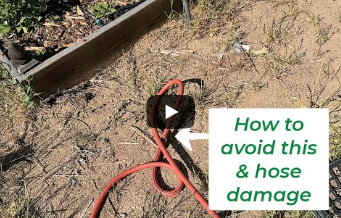How to Control Aphids on Plants: Effective Strategies for a Healthy Garden
Controlling aphids is about getting ahead of the game
Introduction
Aphids are among the most common pests threatening our gardens. These small, sap-sucking insects can quickly colonize plants, causing damage and spreading diseases. Understanding how to control aphids on plants is essential for maintaining a healthy garden. In this article, we’ll explore a variety of methods to manage and eliminate aphid infestations effectively, from natural remedies to more robust chemical treatments.
The Science Behind Aphids: Understanding These Pests
Aphids belong to the family Aphididae, which is a diverse group of insects known for their ability to reproduce rapidly and colonize a wide range of plant species. Here’s a closer look at these fascinating but troublesome pests:
Classification and Description
Aphids are part of the order Hemiptera, which includes insects with piercing-sucking mouthparts. They are soft-bodied and can vary in color—green, black, brown, pink, or almost colorless—depending on their species and the plants they feed on.
Habitat and Behavior
Aphids are found worldwide, thriving in temperate regions but can adapt to various environmental conditions. They typically live on the undersides of leaves where they can discreetly suck sap, sheltered from direct sunlight and some predators.
Host Plants and Damage
Aphids are not particularly picky eaters and can attack a wide array of plants, including vegetables, fruits, ornamentals, and even trees. They extract nutrients from the plant’s phloem, leading to yellowing leaves, stunted growth, and distorted plant parts. Moreover, aphids excrete a sticky substance known as honeydew, which attracts ants and can lead to the growth of sooty mold, further harming the plant.
Natural Remedies to Control Aphids
1. Water Spray
A strong jet of water can dislodge aphids from your plants. This method is straightforward and environmentally friendly, but it may need to be repeated since it doesn’t prevent aphids from returning.
2. Introducing Beneficial Insects
Beneficial insects, such as ladybugs and lacewings, are natural predators of aphids. Introducing these beneficial insects can help control the aphid population naturally. See our latest post on Ladybugs for pest control
3. Neem Oil
Neem oil is an organic pesticide that disrupts the life cycle of aphids without harming beneficial insects. It’s safe for use on vegetables and other plants and is effective when applied regularly.
Master Gardener Tip: At Celtic, we love our natural remedies vs chemical interventions, and are proponents of companion planting. Certain plants can repel aphids naturally. Planting garlic, chives, onions, or marigolds near susceptible plants can help deter aphids. Additionally, planting nasturtiums as a “trap crop” can attract aphids away from more valuable plants.
Chemical Control of Aphids
When natural remedies are not enough, chemical pesticides can be used as a last resort. It’s important to choose the right type of pesticide and follow the application instructions carefully to minimize harm to other insects and the environment.
1. Insecticidal Soaps
These are specially formulated soaps that are safe for plants but lethal to aphids. They work by breaking down the insect’s outer layer, leading to dehydration.
2. Systemic Insecticides
Systemic insecticides are absorbed by the plant and can provide longer-lasting protection against aphids. However, they should be used cautiously as they can affect beneficial insects and pollinators.
Preventing Aphid Infestations
Prevention is always better than cure. Some strategies to prevent aphid infestations include:
- Regularly inspecting plants for early signs of aphids
- Maintaining plant health to improve resistance to pests
- Using row covers to protect plants during peak infestation periods
Conclusion
Controlling aphids on plants requires a balanced approach that includes regular monitoring, employing natural remedies, and, if necessary, the judicious use of chemical treatments. By taking proactive steps and using the methods outlined above, you can protect your garden from the damage caused by aphids and enjoy a healthy, thriving garden.












You must be logged in to post a comment.